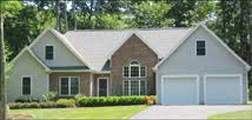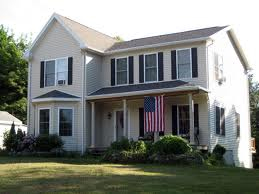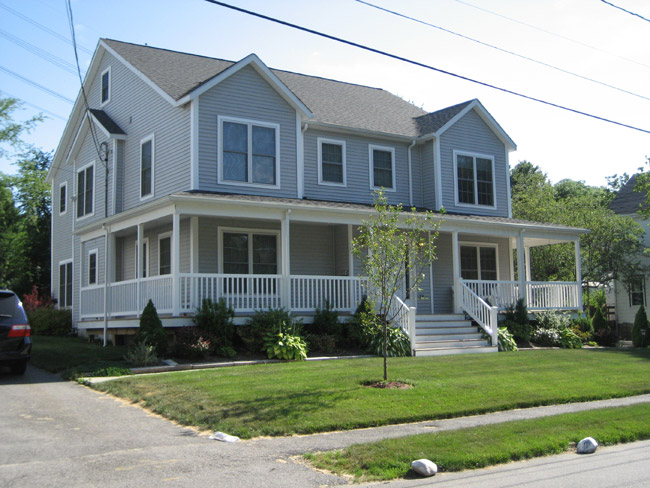CALL 888-764-1297
Magnificently Built Modular Homes
Modular homes fit right in with their traditionally built neighbors. Only if you saw a modular home being delivered would you know that it actually is a modular home. There is a misconception that modular homes all look alike, but this is not the case.
Avalon Building Systems can customize any floor plan to suit your needs and lifestyle. We can also build from your own plans. You choose your interior and exterior finishes, and select from many available amenities like fireplaces, hot tubs, wood cabinets, and luxury flooring. With the help of our architects and designers nearly any home plan can be turned into a modular home.
Construction costs for modular homes are often less per square foot than for like, stick built home. But most often your cost savings will be in other areas; namely time and efficiency.
Modular homes from Avalon Building Systems are very energy efficient. This keeps you heating and cooling costs down throughout the years after you have moved in.
Additionally, your modular home will be ready to move into in a couple of months; much sooner than if you built your home through traditional construction. Contact Avalon Building Systems for more information.
 More and more home buyers are becoming educated on the benefits and the quality of modular homes. But there are still some questions out there in the minds of many. Modular homes can be upscale estate style homes, custom designed 1500-2000 square foot homes or they can be an economical ranch home. Modular homes can be “at home” in any community in New England.
More and more home buyers are becoming educated on the benefits and the quality of modular homes. But there are still some questions out there in the minds of many. Modular homes can be upscale estate style homes, custom designed 1500-2000 square foot homes or they can be an economical ranch home. Modular homes can be “at home” in any community in New England.
You may have seen the recent article in the Boston Globe about the modular home that is being built in Wellesley, MA. If you are familiar with real estate in Massachusetts, you know that Wellesley is about as high-end a community as you will find in our fair commonwealth.
The new $2 million modular Colonial near Wellesley Center comes with plenty of the features considered standard in this high-end community.
A grand foyer opens into an oversize living room with an elegant bluestone fireplace and surround-sound speakers. It boasts six bathrooms, four bedrooms, a granite-marble kitchen, first- and second-floor decks, and mahogany floors throughout the 5,900-square-foot space.
This home sounds beautiful right? It is, and it is a prefabricated home, built in modules and delivered on trucks from the factory.
Manufactured homes can be as upscale as you want them to be. In luxurious neighborhoods and towns, prefab homes can blend in seamlessly with the traditionally built homes in their neighborhoods. They can be custom designed and loaded with luxury amenities, built to almost any size and shape.
Because the construction is done indoors, it’s not affected by weather. That means prefab homes can be built faster and with fewer delays and cost overruns than those constructed onsite.
For information on building your new home with modular construction in any neighborhood, contact Avalon Building Systems.
Excerpts – Boston.com
With the decreasing cost of land combined with the lack of flexibility of renting has many business owners interested in buying their own buildings. However, buying a building that needs renovations is not cost effective and the time it takes to make changes to layouts often will interrupt commerce.
Small to mid-sized businesses are looking to commercial modular construction for office space. For the same reason that home buyers choose modular construction, business owners are as well: efficiency of the building process, energy efficiency of the building once complete, and the lower overall construction costs into which less time is always factored. In Business, time is money. When it takes less time to build your modular building, it takes less money to build it as well.
Modular Office Buildings are perfectly suited for company headquarters, production facilities or offices. Contact Avalon Building Systems for more information.
 As we roll into summer, the home buying and building market is heating up. When considering modular homes you can choose from standard floor plans of pre-designed homes, or you can custom design any home to meet your family’s needs.
As we roll into summer, the home buying and building market is heating up. When considering modular homes you can choose from standard floor plans of pre-designed homes, or you can custom design any home to meet your family’s needs.
With the low mortgage rates, building a new home now is the most optimal choice for many families. As the price of goods increases, you will find that modular home companies are less affected by these price increases than the contractors who build only stick built homes.
The modules for Avalon Building Systems are built in controlled environments. The materials for construction are bought in bulk and stored at the facility, so modular builders are less captive to material increases. This translates into lower materials cost for you, therefore construction costs are generally lower than with traditional construction.
Modular homes also take less time to build; therefore, you are paying lower labor costs and spending less time paying for two homes.
As a result of the decreased time and expenses, often people find that modular construction is the better option for their family. Contact Avalon Building Systems for more information on modular homes in New England and New York.
 There are many would be home owners who want to build a new home, but with the cost of goods increasing, they are having a rethink how they are going to do that. They want a less expensive way to build a home but with equal quality. Modular construction is less expensive and houses can be completed in 30 days.
There are many would be home owners who want to build a new home, but with the cost of goods increasing, they are having a rethink how they are going to do that. They want a less expensive way to build a home but with equal quality. Modular construction is less expensive and houses can be completed in 30 days.
The cost of new construction is almost always what comes to mind first. People can still build their dream homes without investing the amount of time or money to build a traditionally built home. A modular home can be constructed for less because they do not follow the conventional way of building.
Modular housing is an innovative home building process that can be custom designed, built and installed quickly. they are built in sections in a factory setting, where they are not subjected to weather conditions.
The sections or modules move through the factory, with the company’s quality control department checking on every step. Finished modules are transported to home sites where they are placed on a foundation, joined, and completed by a builder.
The houses are affordable, durable, energy efficient and meet or exceed the standards of the city and state. Depending on the preferred design, size and manufacturer, it can be finished in one or two weeks in the factory.
Unless people are there to see the house delivered and assembled, they may not guess it’s a modular home. Modular home manufacturers can custom design modular home floor plans, or to modify one of their standard plans to suit the owner’s needs, so nearly any home plan can be turned into a modular home.
Consumers in search of a custom-built home are giving modular home designs thought. Sometimes they turn to modular houses because they cannot get a conventional builder to respond in time.
More frequently, superior quality, faster completion time, and lower construction costs along with greater energy efficiency, extended warranties, and flexible design options are why people choose modular construction. Customers who want high-quality finishes as well as high-quality construction increasingly understand that they can get both with a modular home.
An advantage of modular homes is that it’s construction reduces material waste and is built with speed and efficiency because it is factory produced. They are easy to build, have low capital cost, low risk, and speedy construction and utilization of local labor.
For more information on modular home construction and design, contact Avalon Building Systems.
The Nation
Modular construction has been around for some time, but recently more people have begun fully appreciating the benefits and exploring the opportunities that modular construction has to offer.
 Some of the pros of modular homes include:
Some of the pros of modular homes include:
Reduced Labor and Lower Costs
In modular homes the same or better quality materials are used as with stick built construction. But up to 80% of the building is built and inspected in a factory, the amount of time required for completion is dramatically reduced. Less construction site time reduces waste, the chance of weather delays, and material damage. Fewer subcontractors on site reduce site supervision costs, as well as costs like waste removal. It takes anywhere from 30% to 50% less time to build a modular home than a traditional home.
Reduced Risk
Safety issues are significantly minimized since the majority of the labor force works in a controlled environment, not a job site. Even if the modular home is two or three stories, workers can work on the ground and then crane the module once completed. Beyond health and safety concerns, security risks related to theft are also reduced; cost overruns are minimized, as are insurance and other “hidden cost” liabilities.
In addition to all these cost savings, with modular construction the homeowner is still able to be creative and design customized floor plans.
In addition to the reduced on-site waste and reduced costs during construction there is another advantage to modular construction. As a result of the in factory manufacturing processes, modular homes are tighter with less air infiltration making them more energy efficient than stick built homes.
Design Build Source
 Over the past few years, the interest in modular homes has increased.
Over the past few years, the interest in modular homes has increased.
Builders and homeowners use these modular homes as a way to control quality, cut waste and streamline construction to improve start-to-finish timetables.
Recently, the green movement has hit home construction industry in full force, influencing the type and source of materials used, how parts are put together and how they affect daily living.
Avalon Building Systems manufactures single- and multi-family modular homes, as well as modular commercial buildings.
Avalon assembles the factory-built modules into a house on-site, along with a foundation, electrical and plumbing systems, doorways, final flooring and exterior.
The bottom line for the homeowner is a better-quality home that’s energy-efficient.
Other differences in modular construction include efficient use of materials; cutting the factory-waste stream; reduced gasoline and carbon footprints; more efficient materials; and more efficient sealing processes for less air infiltration and off-gassing. This results in a green more energy efficient home with lower energy costs.
For more information in the New England area, contact Avalon Building Systems.
Excerpts from San Angelo Standard Times
 Can Avalon Building Systems build a custom designed home for me?
Can Avalon Building Systems build a custom designed home for me?
In a word, yes! At Avalon Building Systems our staff includes professional residential and commercial designers. You can work with one of the hundreds of modular floor plan we have, and personalize your home to your needs. Or if you have had plans drawn up by an architect, we are happy to work with those plans, too.
Do modular homes meet code requirements in my town, city, state?
Our modular homes meet or exceed all applicable state and local codes. Each of our modular homes is engineered to meet the appropriate state and local building codes. We have all our building plans approved by the State before we begin construction.
Can I build a “green” home?
At Avalon Building Systems we can help you design a home that meets “green” standards. Throughout the site design, building design, and construction we can help you maximize your LEED points. All of the members of our staff are LEED accredited in order to better serve you, and we are always exploring new, better ways to build.
For information on building a modular home in New England and New York, contact us.
 Designs from different eras may not always match. But they do in a modular home where you can combine crown molding and colonial charm with new construction technology and building systems.
Designs from different eras may not always match. But they do in a modular home where you can combine crown molding and colonial charm with new construction technology and building systems.
Modular homes are built with the latest in construction technology and standards. The modules are constructed in a factory setting and built with Structural Insulated Panels or SIPs. SIPS create the walls, ceilings, floors, and roofs that close in the building creating a better insulated and better built home.
SIPs have been around for a while and Avalon Building Systems was the designer and builder of the very first "modular SIPS" home in the United States. Structural Insulated Panels (SIPs) are prefabricated insulated structural elements for use in building modular home at Avalon Building Systems. They provide superior and uniform insulation compared to more traditional construction methods.
Modular homes are available from Avalon Building Systems all over New England and New York. For more information on more efficient, LEEDs certified and Energy Star rated new homes, contact Avalon Building Systems.
 Modular construction is increasing in popularity and is quickly becoming well known and the often preferred construction method today. This is because modular homes are more efficient and timely to build over traditional construction.
Modular construction is increasing in popularity and is quickly becoming well known and the often preferred construction method today. This is because modular homes are more efficient and timely to build over traditional construction.
With ever evolving technology, modular home builders can easily adapt to new technology and build custom designed modular homes that are very high quality and impossible to discern from a stick built home. But, modular homes are built in a quarter of the time of a stick built home.
Avalon Building Systems has hundreds of floor plans from which to choose, from multi-family properties to small vacation homes, or you can design your own home. There are also hundreds of amenities from which to choose including counters, cabinets, flooring, lighting and finishes, everything to make your new home the home you have been looking forward to building.
For information on custom designed homes in New England and New York, contact Avalon Building Systems.
HOME | COMMERCIAL | RESIDENTIAL | MODULAR BENEFITS | FLOOR PLANS | GALLERY | FINANCIAL INFO | TESTIMONIALS | ABOUT | CONTACT | BLOG | SITE MAP